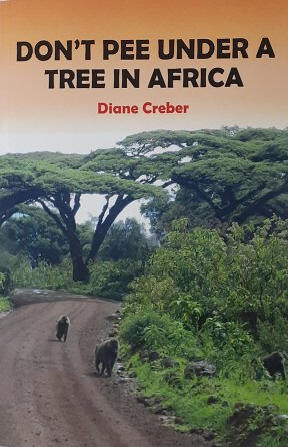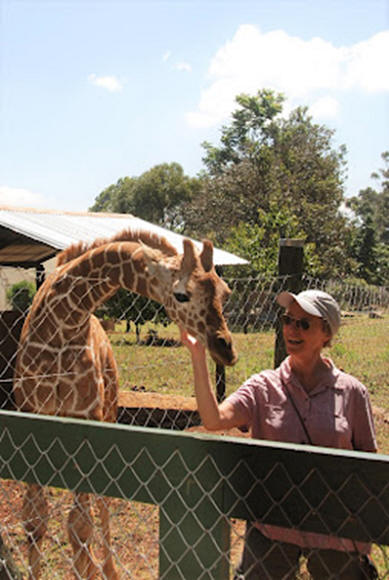
Don't Pee Under A Tree In Africa

Available at various bookstores in and around Kingston, Ontario including Novel Idea, 156 Princess Street, Kingston, Truesdale's General Store, Sydenham. Also Amazon and Kindle or email:
 Diane
Creber’s latest book, Don’t Pee under a Tree in Africa, is a travel
journal about the time she and her husband, painter Tim De Rose, lived with a
Kenyan friend and his family and traveled throughout Kenya and Tanzania. Like
all good travel memoirs, this one begins with a dream. Diane’s is to “see the
animals.” Along the way, she experiences much more, discovering a country unseen
by most safari tourists.
Diane
Creber’s latest book, Don’t Pee under a Tree in Africa, is a travel
journal about the time she and her husband, painter Tim De Rose, lived with a
Kenyan friend and his family and traveled throughout Kenya and Tanzania. Like
all good travel memoirs, this one begins with a dream. Diane’s is to “see the
animals.” Along the way, she experiences much more, discovering a country unseen
by most safari tourists.
The journey begins when a tall, distinguished Kenyan appears one day at Diane and Tim’s pottery studio in rural Ontario. Paul Kioko in now living in his native Kenya after a career working for the Kenyan attaché to the UN in New York, and one of his new entrepreneurial ventures is traveling around North America representing a cooperative of Kamba wood carvers. As Paul and the couple become friends, he invites them to visit him and his family in Africa. For Diane, the trip is the realization of a lifelong yearning to see African wildlife close up. With Paul as their guide, the visit becomes much more.
Paul’s young wife and their son and niece have never met white people before and are terrified by the Canadians in their home. Diane works hard to break down barriers. With Paul as their savvy host and guide, they visit wildlife parks, remote villages, a luxury resort and are taken to have tea with Barrack Obama’s Kenyan family. Diane and Tim do have close contact with wild animals but they also encounter corrupt officials, confront a knife-wielding robber, and witness devastating highway accidents. Paul’s wife Esther takes Diane into the Nairobi slum just beyond the family’s tidy, affluent suburb, opening Diane’s eyes to the country’s poverty and dramatically challenging her middle-class values. A picture takes shape of a troubled, highly complex society still under the shadow of colonialism. Even elite citizens like Paul are shut out in their own country from a world of privilege reserved for whites.
Through the lens of a privileged white Canadian woman, Diane chronicles with humanity and humour a life-changing journey.
Diane's Writing